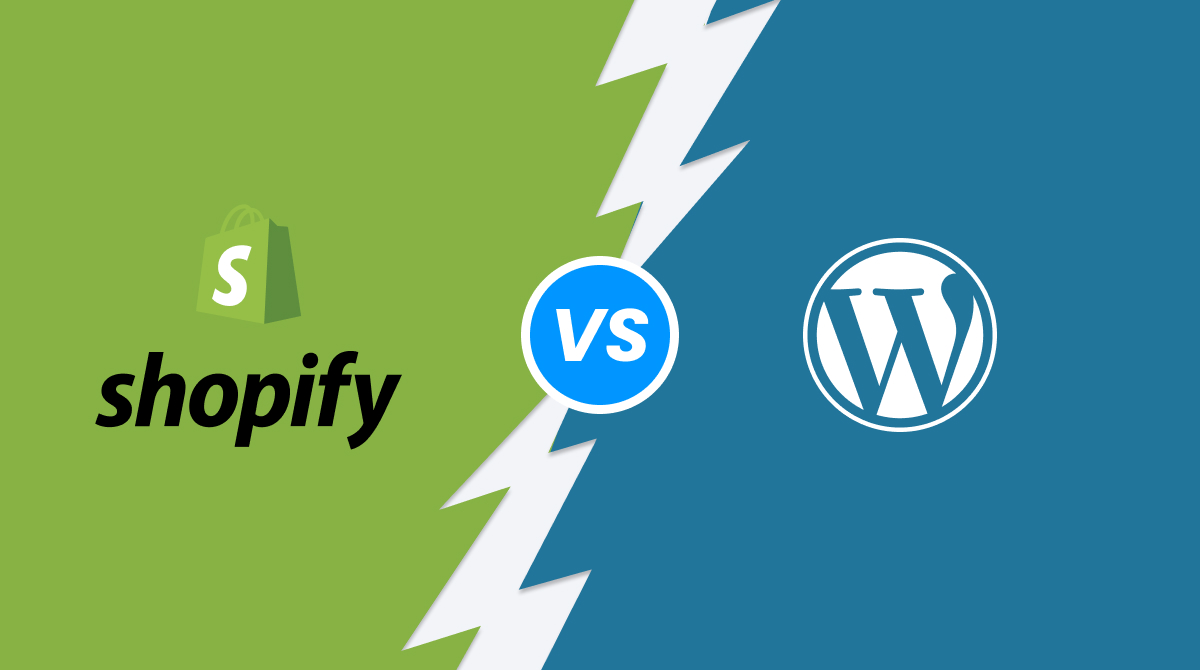In the world of e-commerce, choosing the right platform is a critical decision for businesses looking to establish a strong online presence. Shopify and WooCommerce (which integrates seamlessly with WordPress) are two of the most popular platforms, each offering a range of features and benefits. However, many clients prefer Shopify over WooCommerce due to several factors, including ease of use, scalability, integrated features, and support. In this article, we will explore the key reasons why clients choose Shopify as their go-to e-commerce solution, despite WooCommerce’s capabilities.
1. Ease of Use: Shopify’s User-Friendly Interface
One of the main reasons clients opt for Shopify is its simplicity. Shopify is a fully hosted, all-in-one platform that takes care of everything, from hosting to security, making it incredibly user-friendly for beginners.
- No Coding Required: Shopify’s drag-and-drop builder allows clients to design their stores without any coding skills. In contrast, WooCommerce (being a WordPress plugin) requires users to manage both WordPress and WooCommerce, which can be overwhelming for those unfamiliar with the WordPress ecosystem.
- Simplified Store Management: Shopify offers a dedicated dashboard where clients can manage products, payments, and orders easily. WooCommerce, while highly customizable, is built on WordPress, which requires more steps to install, maintain, and operate.
2. All-in-One Solution
Shopify provides an all-inclusive solution for e-commerce businesses, while WooCommerce, as a plugin for WordPress, requires additional setups.
- Hosting and Security: Shopify includes web hosting, security features, and PCI compliance, making it hassle-free. WooCommerce, being a self-hosted solution, requires users to purchase and manage their own hosting, which can be complex, especially when securing the site with SSL certificates or managing site speed.
- Fewer Plugins: Shopify has many built-in features such as shipping, taxes, and product management, whereas WooCommerce relies heavily on plugins to add similar functionalities. While WooCommerce’s flexibility is a strength, it can also lead to issues like plugin conflicts, which clients prefer to avoid.
3. Scalability
Shopify is known for its scalability, making it ideal for businesses that plan to grow or experience fluctuating traffic volumes.
- Cloud-Based Infrastructure: Shopify’s cloud-based system ensures that the platform can handle high traffic and large numbers of transactions without performance issues. WooCommerce can also scale but often requires optimization and higher-tier hosting plans to perform efficiently as traffic increases.
- Enterprise Options: Shopify offers Shopify Plus, a plan designed specifically for high-volume and enterprise-level businesses. This makes it easy for growing businesses to transition to a more powerful plan without needing to switch platforms. WooCommerce’s scalability depends more on the user’s hosting provider and site optimizations.
4. App Ecosystem and Customization
Both Shopify and WooCommerce offer extensive customization options, but the way they integrate apps and themes differs.
- Shopify App Store: Shopify’s app store has over 6,000 apps, allowing clients to add functionalities like email marketing, accounting, and advanced analytics with a few clicks. WooCommerce also has a large extension library, but users often need to install multiple plugins, which may require extra configuration or cause compatibility issues.
- Themes and Customization: Shopify offers a variety of professional themes, and customization is straightforward. WooCommerce, because it’s built on WordPress, allows for deeper customization but may require coding skills or hiring a developer to achieve the same results.
5. 24/7 Customer Support
Another reason clients prefer Shopify is its dedicated customer support, which is available 24/7.
- Responsive Support: Shopify’s customer support team is known for providing quick and helpful responses, whether through live chat, email, or phone. WooCommerce, being an open-source plugin, does not come with dedicated support. Users rely on community forums, documentation, or developers to resolve issues, which can be a slower process.
- Technical Peace of Mind: Shopify’s managed service approach gives clients peace of mind, as they don’t need to worry about troubleshooting technical issues. With WooCommerce, users are responsible for managing and maintaining the technical aspects of their store, which can be challenging for non-technical users.
6. SEO and Marketing Features
While both Shopify and WooCommerce are capable of driving traffic through SEO, Shopify simplifies the process for the average user.
- Built-In SEO Features: Shopify offers built-in SEO features such as automatic sitemap generation, clean URL structures, and mobile-friendly designs. WooCommerce, being integrated with WordPress, provides more advanced SEO options, especially when paired with plugins like Yoast SEO. However, the setup can be more complex, which may deter clients looking for a simpler solution.
- Marketing Integration: Shopify offers seamless integration with marketing tools like Google Ads, Facebook, and Instagram, making it easy for clients to run marketing campaigns. WooCommerce offers similar options, but often through third-party plugins that require additional setup.
7. Payment Gateways and Global Reach
Shopify excels in offering easy-to-use payment options, making it more appealing for clients who want to serve a global audience.
- Shopify Payments: Shopify comes with its own integrated payment gateway, Shopify Payments, which supports multiple currencies and payment methods without additional transaction fees. WooCommerce also supports a wide range of payment gateways, but they often require third-party integrations, which can add complexity.
- Multi-Currency and Multi-Language Support: Shopify’s built-in features make it easy for businesses to sell in multiple currencies and languages. WooCommerce also supports multi-currency and multi-language options, but again, this requires additional plugins and configuration.
Conclusion
While WooCommerce, being a powerful and flexible WordPress plugin, offers significant advantages in terms of customization and control, many clients prefer Shopify due to its ease of use, scalability, and all-in-one approach. Shopify simplifies the process of managing an online store, providing built-in security, hosting, customer support, and marketing tools, making it a more accessible option for many businesses.
For clients looking for a user-friendly, scalable, and secure e-commerce platform that doesn’t require extensive technical knowledge, Shopify remains a top choice. While WooCommerce offers greater flexibility, it often comes with added complexity, which many clients prefer to avoid.
